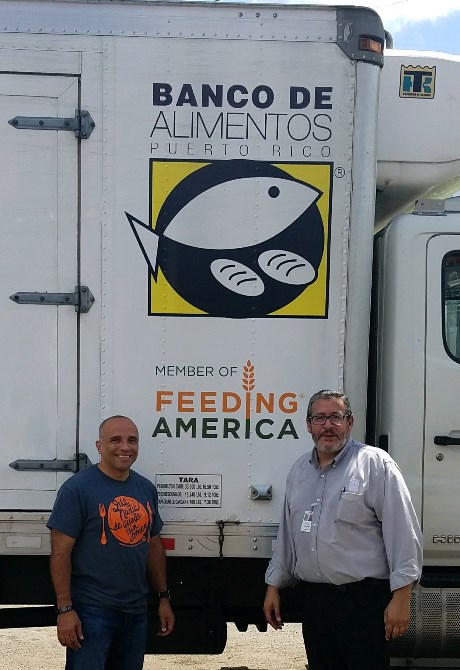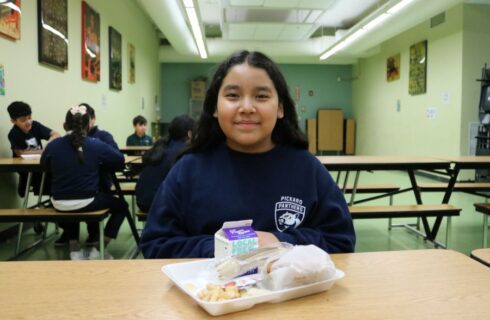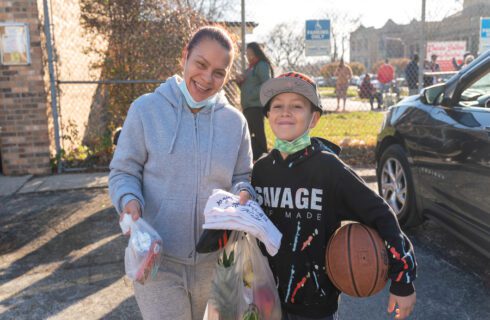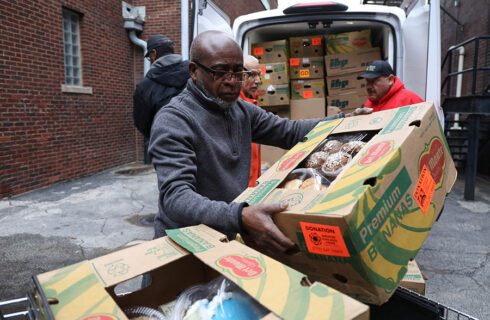
Angel La Luz (left) and Carlos Rodriguez at Banco de Alimentos de Puerto Rico
“Every single day, you were tired, but you felt like you accomplished a heck of a lot – and you felt like you accomplished it as part of a team,” Carlos says.Angel worked in the FEMA headquarters for the first several days. He coordinated with the food bank, answering the questions “what did we do, how much did we do, where did we do it” on a daily basis. This coordination ensured that all disaster response groups could work together to meet the need across the island. Even after the hurricane, severe weather conditions created obstacles to recovery. Angel recalls visiting a food pantry to assess damages one day. The visit was cut short when heavy rain started to flood the surrounding roads. Travel times were long, and conditions were hazardous. In addition, limited electricity and phone service made communication difficult. For Angel, these challenges had a personal component: he worked with the food bank to coordinate a delivery to his wife’s 86-year-old aunt. She had very limited access to communication and was almost out of food and water when the delivery arrived. Both Carlos and Angel take pride in the support they received from fellow food bank staff, both in Puerto Rico and back at the Food Depository. They agree that the response illustrates the power of the national network of food banks.
“We were there not as individuals, but as part of a broader response. We were there to ensure that people in need were able to get the services that they needed. It doesn’t get any more basic than food,” Angel says.For him, the recovery effort brought to mind his service in the Army, with a critical mission to accomplish in a short time. But he’s encouraged to know that the response will continue. “This recovery effort is going to be going on for quite some time to come,” says Angel. “You leave with some satisfaction, but with mixed feelings because you know there’s so much more that needs to be done. There’s still a team that’s going to continue the work that we started.”
Share This Post



